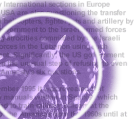
27 October 1999
YUGOSLAVIA
'The forgotten resisters' of the Kosovo conflict - the price of conscience
 |
Amnesty International - News Release
- EUR 70/118/99
27 October 1999 YUGOSLAVIA 'The forgotten resisters' of the Kosovo conflict - the price of conscience |
This was one of many calls made by leaders of NATO states to those serving in the Yugoslav armed forces. But little attention has been paid to the fate of thousands of young men who took such words to heart -- or who chose to risk everything to remain true to their conscience.
"Now that the conflict has ended, many conscientious objectors find themselves without any assurance of long-term security in the countries to which they have fled and the prospect of lengthy prison sentences if returned to the Federal Republic of Yugoslavia (FRY)," said Brian Phillips of Amnesty International, who has just returned from Hungary -- the country where most of these men sought refuge.
"The governments who issued the calls to resistance appear to take little or no interest in the plight of these men: they have become the 'forgotten resisters'."
At least several hundred conscientious objectors are already said to have been imprisoned in the Federal Republic of Yugoslavia ,along with draft evaders and deserters -- most of them serving a sentence of at least five years' imprisonment. The number of such cases currently before the FRY military courts may be at least 23,000 according to information received by Amnesty International.
Crammed into a small room in a refugee camp with seven other men and remembering the security of his own flat and a job and a life back in Serbia, 'Goran' measures out the cost of having remained true to the principles that led him to conclude that he could under no circumstances fight in the conflict in Kosovo: "I risked my life to get here and I am grateful for what I have -- but it is not normal to stay in a room with seven other people."
'Goran' is one of a number of conscientious objectors interviewed by Amnesty International in September in Hungary. In its report, the organization reveals the disappointing response to the plight of these men by the Hungarian authorities and international agencies, who frequently fail to recognize these resisters as bona fide refugees.
"The stories told by those we interviewed reveal a pattern of consistent neglect by the international community of a group of men clearly in need of urgent attention and guarantees of protection," said Brian Phillips.
"Without exception, these men spoke of a disturbing lack of information available to them concerning their status as conscientious objectors to military service."
'Aleksa', a member of the Seventh Day Adventist Church, was also interviewed by Amnesty International. He was willing to perform unarmed military service -- but he refused, on the basis of his faith, to take part in armed conflict or to carry out orders to kill. In a written statement given to Amnesty International, Aleksa has said that: "I cannot return to my country as a deserter, because my life would be in danger."
Amnesty International believes that any claim to be a refugee put forward by such individuals is based upon a well-founded fear of persecution on grounds of religious belief or political opinion, and they should be granted effective and durable protection.
The organization also maintains that the well-documented violations of international humanitarian law perpetrated by members of Yugoslav forces in the province, should in itself provide sufficient grounds for refusing to serve in the armed forces for reasons of conscience.
To ensure that 'Aleska' and others like him are not forgotten, Amnesty International is calling on the national authorities and the international community -- especially the governments of NATO member-states -- to take the following measures immediately:
-The FRY authorities: to release of all imprisoned conscientious objectors to military service and immediately suspend judicial proceedings currently being brought against those who merit recognition as conscientious objectors to military service;
-the Hungarian and other governments: to ensure that no individual who fled from the Federal Republic of Yugoslavia on the grounds of their conscientiously held convictions or beliefs, is returned to face arrest, prosecution, or imprisonment and that they are granted effective and durable protection; and
-the international community: to ensure that all officials are made properly aware of the relevant international standards concerning conscientious objection to military service. It should also uphold its responsibilities to ensure that those who fled from the Federal Republic of Yugoslavia to avoid military service on the grounds of their conscientiously held convictions are granted protection.
For more information please see Amnesty International's report "The forgotten resisters: the plight of conscientious objectors to military service after the conflict in Kosovo" (AI Index: EUR 70/111/99).
Source: Amnesty International, International Secretariat, 1 Easton Street, WC1X 8DJ, London, United Kingdom
|
|
Homepage
Inhaltsverzeichnis - Contents Seite erstellt am 30.10.1999 Mail |
||
|
Dillinger Straße 41...
86637 Wertingen. .. |
|||
|
Telefon
08272 - 98974
Fax 08272 - 98975.... |
|||
| E-mail wplarre@bndlg.de |